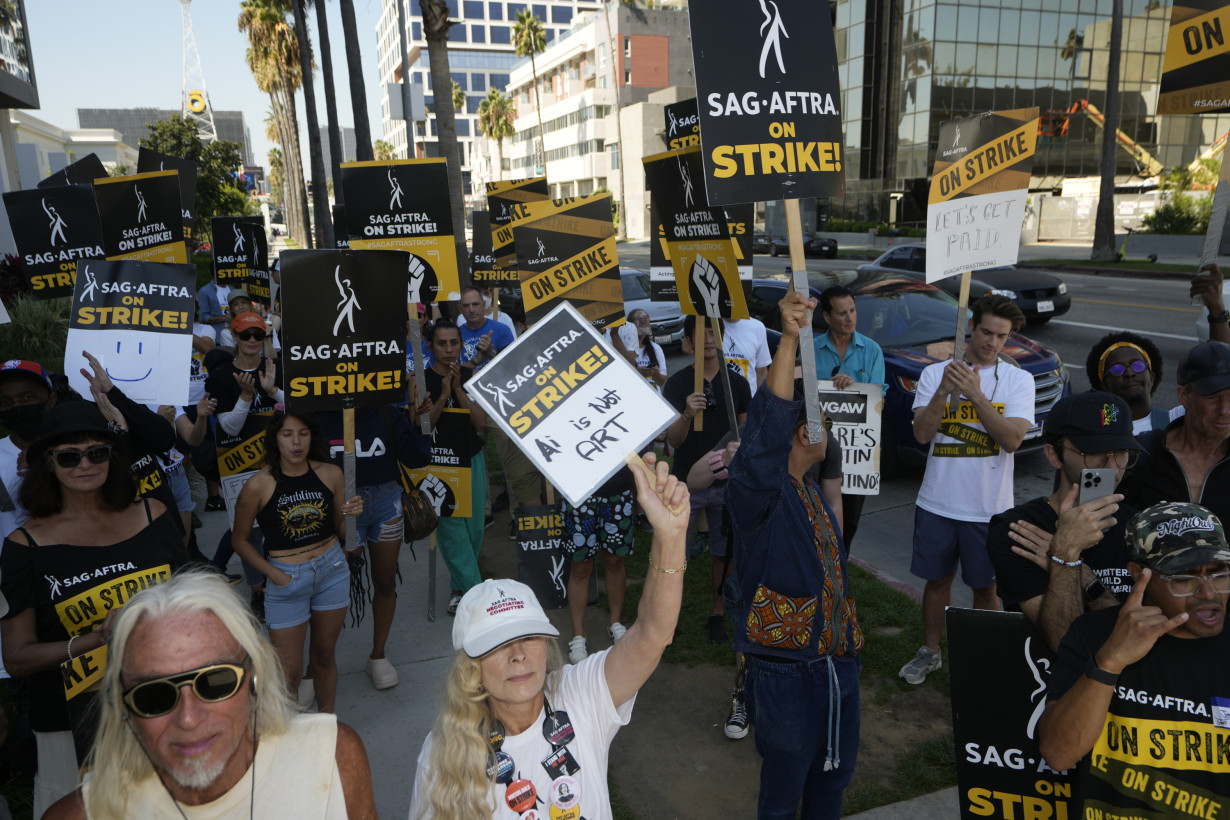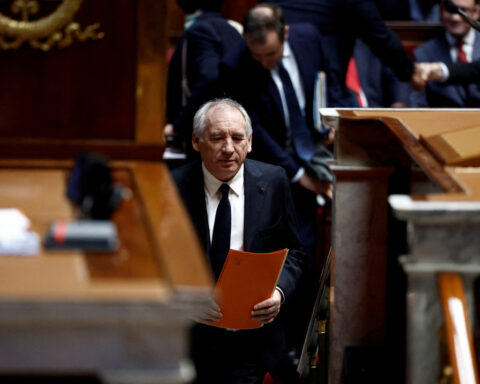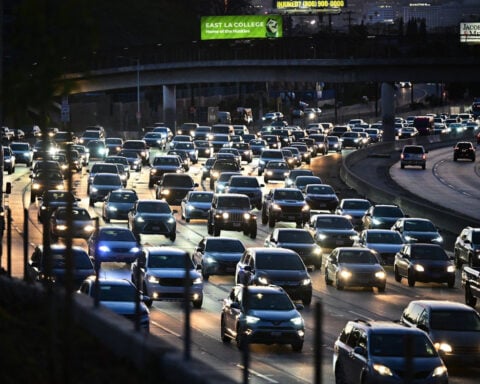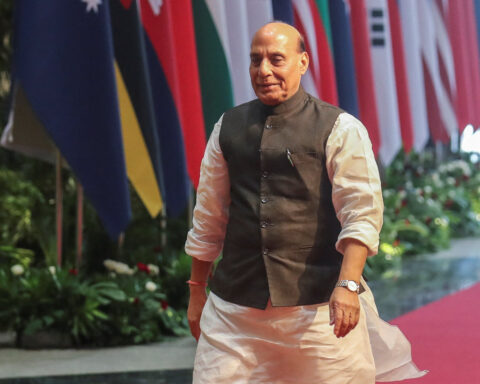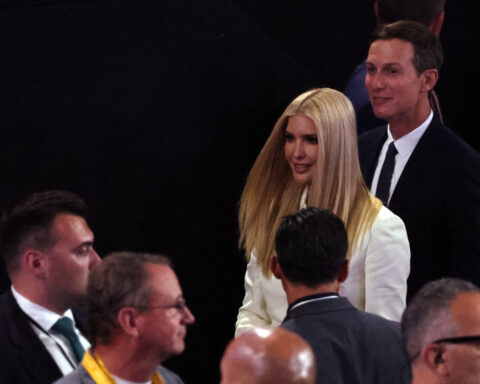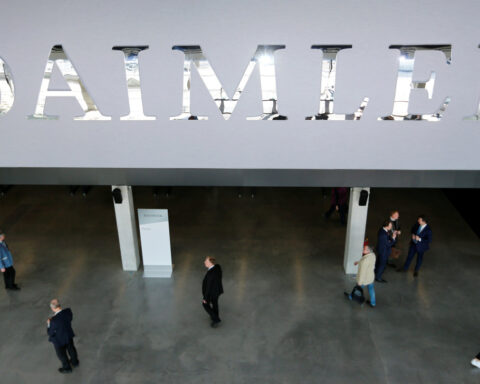NEW YORK (AP) — After a 148-day strike, Hollywood screenwriters secured significant guardrails against the use of artificial intelligence in one of the first major labor battles over generative AI in the workplace.
During the nearly five-month walkout, no issue resonated more than the use of AI in script writing. What was once a seemingly lesser demand of the Writers Guild of America became an existential rallying cry.
The strike was also about streaming-era economics, writers room minimums and residuals — not exactly compelling picket-sign fodder. But the threat of AI vividly cast the writers' plight as a human-versus-machine clash, with widespread implications for other industries facing a radically new kind of automation.
In the coming weeks, WGA members will vote on whether to ratify a tentative agreement, which requires studios and production companies to disclose to writers if any material given to them has been generated by AI partially or in full. AI cannot be a credited writer. AI cannot write or rewrite “literary material." AI-generated writing cannot be source material.
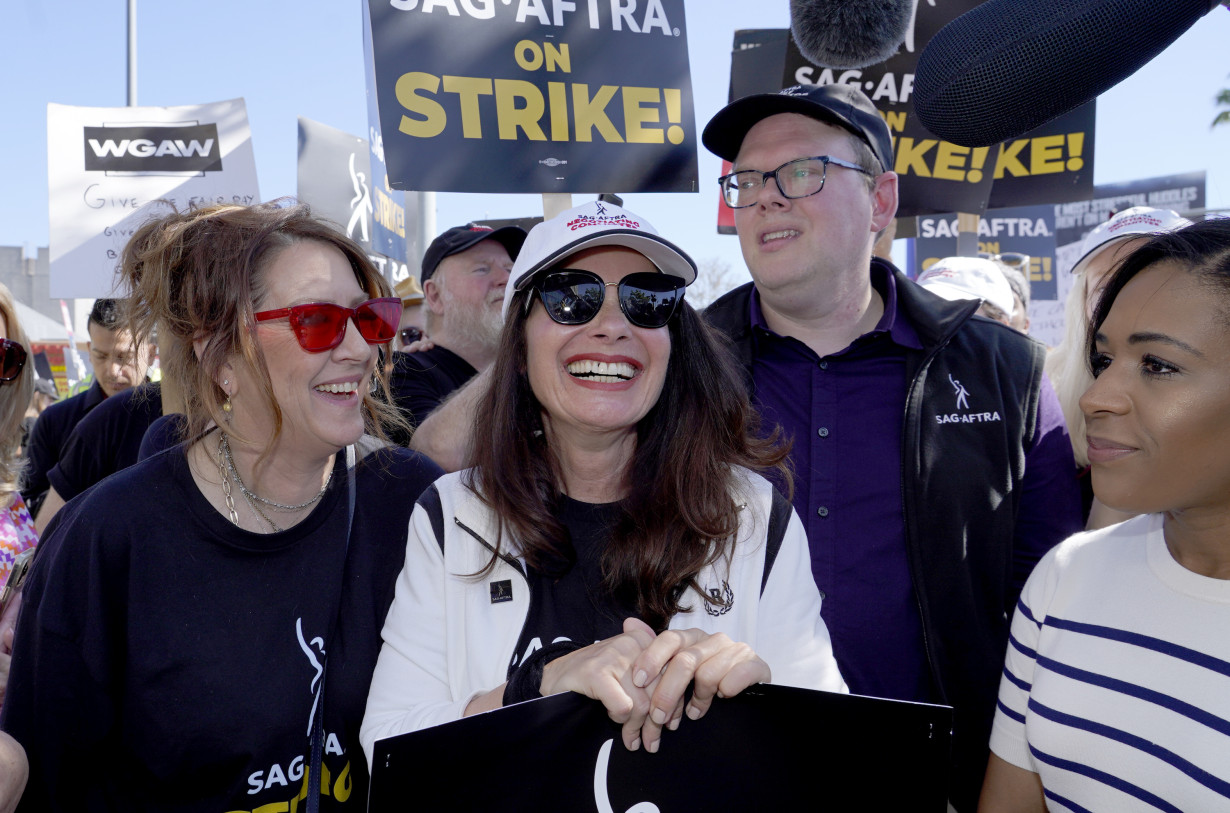
“AI-generated material can’t be used to undermine a writer’s credit or separated rights," the proposed contract reads.
Many experts see the screenwriters' deal as a forerunner for labor battles to come.
“I hope it will be a model for a lot of other content-creation industries,” said Tom Davenport, a professor of information technology at Babson College and author of “ All-in on AI: How Smart Companies Win Big with Artificial Intelligence.” “It pretty much insures that if you're going to use AI, it's going to be humans working alongside AI. That, to me, has always been the best way to use any form of AI.”
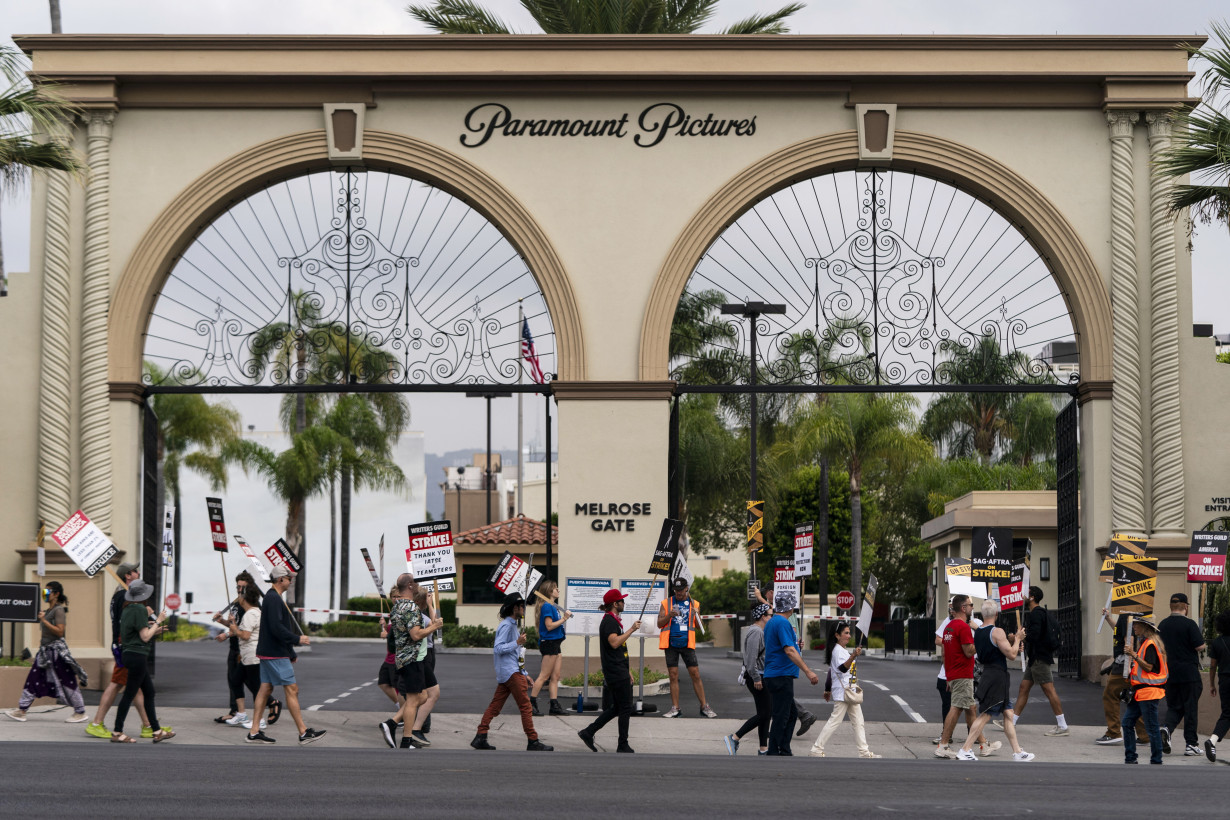
The tentative agreement between the Writers Guild and the Alliance of Motion Picture and Television Producers, which negotiates on behalf of the studios, doesn’t prohibit all uses of artificial intelligence. Both sides have acknowledged it can be a worthwhile tool in many aspects of filmmaking, including script writing.
The deal states that writers can use AI if the company consents. But a company cannot require a writer to use AI software.
Language over AI became a sticking point in the writers’ negotiations, which dragged on last week in part due to the challenges of bargaining on such a fast-evolving technology.
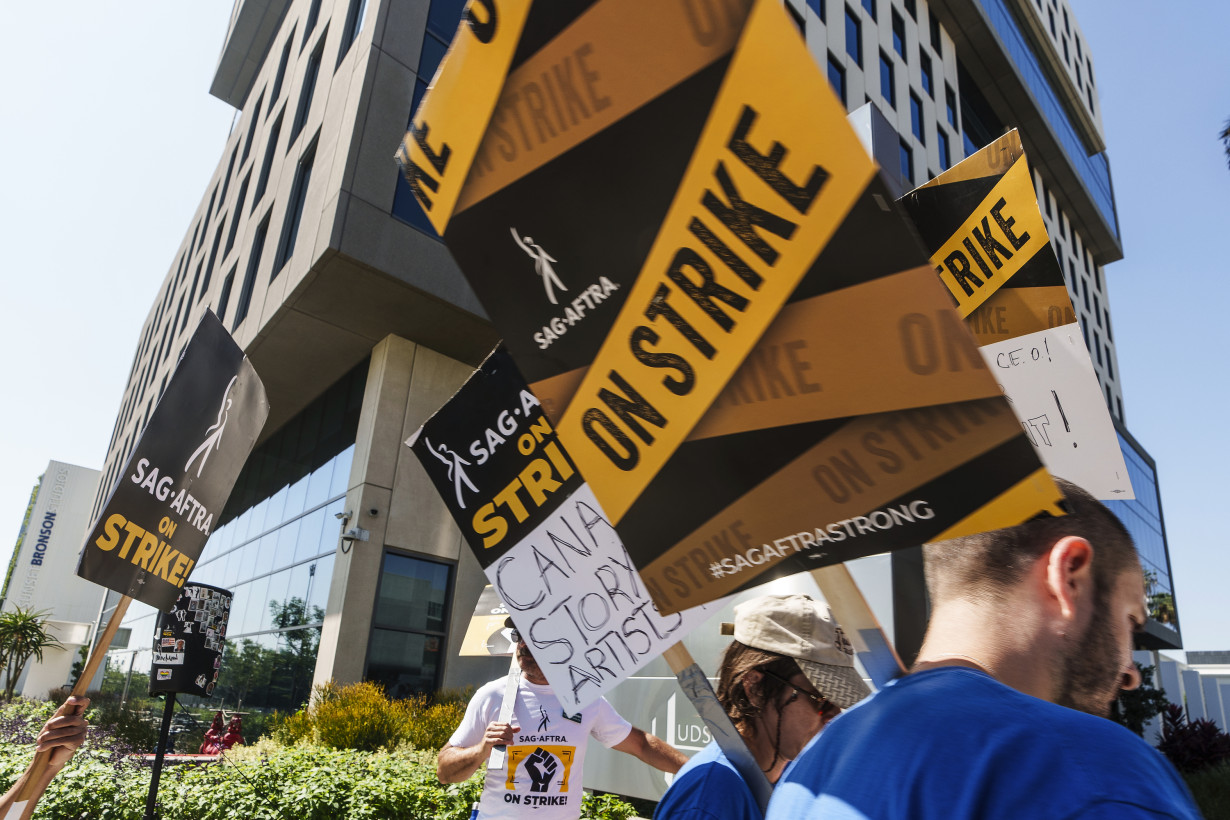
When the writers strike began on May 2, it was just five months after OpenAI released ChatGPT, the AI chatbot that can write essays, have sophisticated conversations and craft stories from a handful of prompts. Studios said it was it too early to tackle AI in these negotiations and preferred to wait until 2026.
Ultimately, they hashed out terms while noting that the outlook is certain to change. Under the draft contract, "the parties acknowledge that the legal landscape around the use of (generative AI) is uncertain and rapidly developing.” The companies and the guild agreed to meet at least twice a year during the contract's three-year term.
At the same time, there are no prohibitions on studios using scripts they own to train AI systems. The WGA left those issues up to the legal system to parse. A clause notes that writers retain the right to assert that their work has been exploited in training AI software.
That's been an increasingly prominent concern in the literary world. Last week, 17 authors, including John Grisham, Jonathan Franzen and George R.R. Martin, filed a lawsuit against OpenAI alleging the “systematic theft on a massive scale” of their copyrighted books.
The terms the WGA achieved will surely be closely watched by others — particularly the striking members of the actors union, SAG-AFTRA.
“This is the first step on a long process of negotiating and working through what generative AI means for the creative industry — not just writers but visual artists, actors, you name it,” says David Gunkel, a professor of media studies at Northern Illinois University and author of “Person, Thing, Robot.”
Actors, on strike since July 14, are likewise seeking better compensation from streaming. But they are also demanding safeguards against AI, which can potentially use a star's likeness without his or her permission or replace background actors entirely.
Attempts to adopt AI “as a normal operating procedure” are "literally dehumanizing the workforce,” actor Bryan Cranston said recently on a picket line. “It’s not good for society. It’s not good for our environment. It’s not good for working-class families.”
In other developments, SAG-AFTRA members voted overwhelmingly Monday in favor of a strike authorization against video game companies. The use of AI in gaming is a particularly acute anxiety for voice-over actors.
Some skeptics doubt whether the writers made significant headway on AI. Media mogul Barry Diller, chairman of the digital media company IAC, believes not enough was done.
“They spent months trying to craft words to protect writers from AI, and they ended up with a paragraph that protected nothing from no one,” Diller told CNBC.
Robert D. Atkinson, president of the tech policy think tank Information Technology & Innovation Foundation, said limiting AI is unproductive.
“If we ban the use of tools to make organizations more productive, we are consigning ourselves to stagnation,” Atkinson write on X, formerly known as Twitter.
What most observers agree on, though, is that this was just the first of many AI labor disputes. Gunkel expects to see both writers and studios continue to experiment with AI.
“We’re so early into this that no one is able to anticipate everything that might come up with generative AI in the creative industries,” Gunkel said. “We’re going to see the need again and again to revisit a lot of these questions.”
___
Follow AP Film Writer Jake Coyle at: http://twitter.com/jakecoyleAP

 Joann files for bankruptcy — again
Joann files for bankruptcy — again
 German economy, Europe’s largest, shrinks for second straight year
German economy, Europe’s largest, shrinks for second straight year
 Supreme Court will hear Texas anti-pornography law that challengers say violates free-speech rights
Supreme Court will hear Texas anti-pornography law that challengers say violates free-speech rights
 Comoros ruling party wins parliamentary elections, opposition rejects results
Comoros ruling party wins parliamentary elections, opposition rejects results
 Sweden seeks to change constitution to be able to revoke citizenships
Sweden seeks to change constitution to be able to revoke citizenships
 Confused about all the tax changes in the past decade? Just wait
Confused about all the tax changes in the past decade? Just wait
 US inflation likely remained elevated last month, threatening interest rate cuts
US inflation likely remained elevated last month, threatening interest rate cuts
 Coors Light is changing its name
Coors Light is changing its name
 Tiger Woods’ son Charlie chuckles while watching his dad suffer heavy defeat in TGL debut
Tiger Woods’ son Charlie chuckles while watching his dad suffer heavy defeat in TGL debut
 Bayern Munich signs US youngster Bajung Darboe from LAFC
Bayern Munich signs US youngster Bajung Darboe from LAFC
